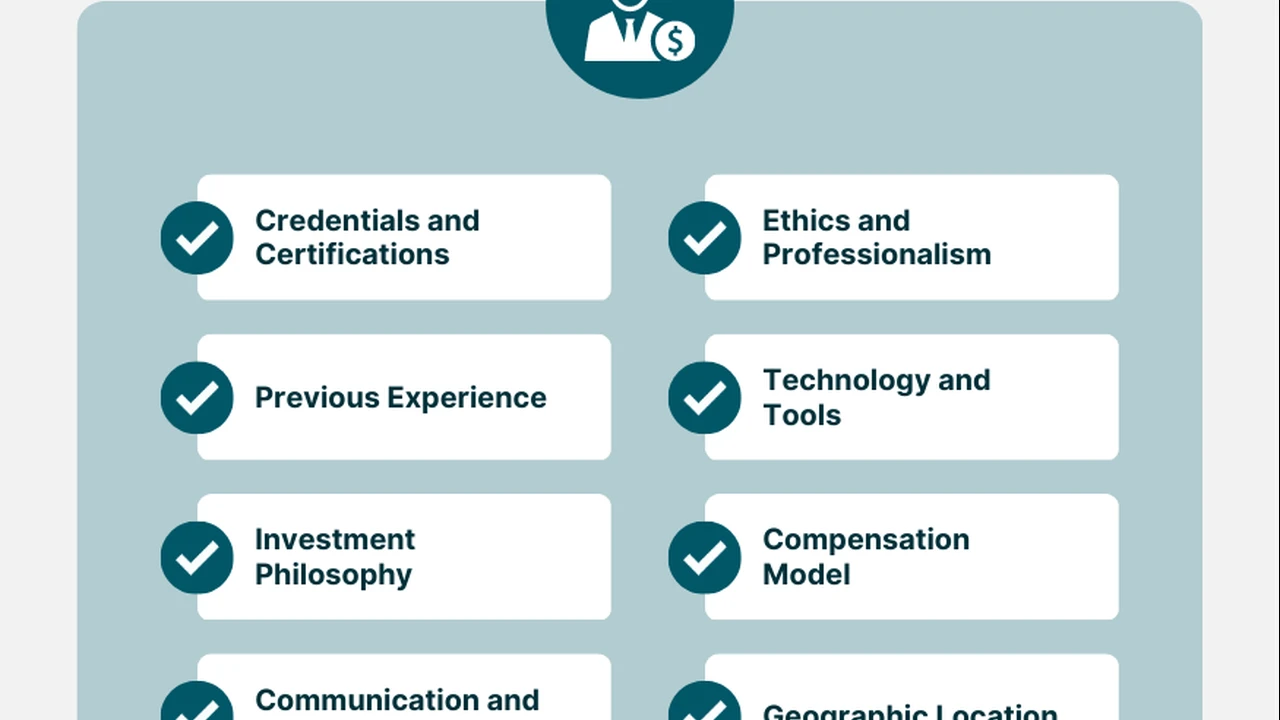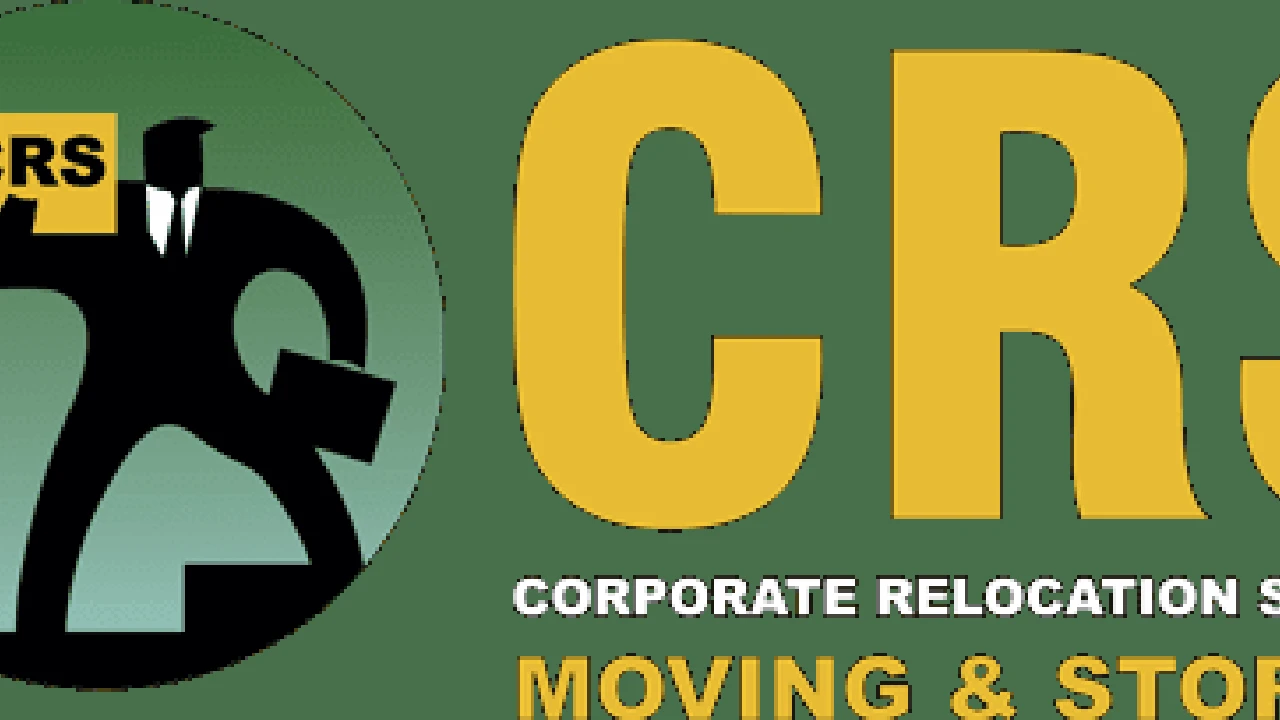Choosing a Financial Advisor What to Look For
A guide to choosing the right financial advisor to help you navigate complex financial decisions and achieve your goals.

Choosing a Financial Advisor What to Look For
Hey there! So, you're thinking about getting some professional help with your money, huh? That's a smart move! Navigating the world of investments, retirement planning, and just generally making your money work for you can feel like trying to solve a Rubik's Cube blindfolded. That's where a financial advisor comes in. But here's the thing: picking the right one isn't like grabbing a coffee. It's a big decision that can seriously impact your financial future. So, let's break down what you should be looking for, what questions to ask, and how to make sure you're getting the best fit for your unique situation.
Understanding Financial Advisor Types and Their Roles
First off, not all financial advisors are created equal. It's like comparing a general practitioner to a specialist. They all deal with money, but their approaches, services, and even how they get paid can vary wildly. Knowing these differences is your first step to finding the right person.
Fee Only vs Fee Based Financial Advisors Explained
This is probably the most crucial distinction. It boils down to how they get paid, and it can significantly impact the advice you receive.
- Fee-Only Advisors: These folks are paid directly by you, the client, for their advice. This could be an hourly rate, a flat fee for a specific service (like a financial plan), or a percentage of the assets they manage for you (e.g., 1% of your investment portfolio annually). The big advantage here? They don't earn commissions from selling you specific products like mutual funds, insurance policies, or annuities. This generally means their advice is less biased and more aligned with your best interests. They are fiduciaries, meaning they are legally obligated to act in your best interest.
- Fee-Based Advisors: This is where it gets a little trickier. Fee-based advisors can charge you fees (like fee-only advisors) AND earn commissions from selling financial products. While they might offer valuable advice, there's a potential conflict of interest. They might be incentivized to recommend products that pay them a higher commission, even if those aren't the absolute best fit for you. They often operate under a 'suitability standard,' which means the recommendations just have to be 'suitable' for you, not necessarily the 'best.'
Our Recommendation: For most people, especially those seeking unbiased advice, a fee-only fiduciary advisor is generally the preferred choice. It ensures their incentives are directly aligned with your financial success.
Robo Advisors vs Human Financial Advisors Making the Choice
The digital age has brought us robo-advisors, which are essentially automated platforms that manage your investments based on algorithms. They're usually much cheaper than human advisors and great for hands-off investing.
- Robo-Advisors: Think of them as a low-cost, automated investment manager. You answer a few questions about your risk tolerance and financial goals, and the algorithm builds and manages a diversified portfolio for you, often using ETFs. They're fantastic for beginners, those with smaller portfolios, or people who just want simple, low-cost investment management. Companies like Betterment and Wealthfront are popular examples.
- Human Financial Advisors: These are the traditional advisors who offer personalized, one-on-one advice. They can help with complex financial situations, estate planning, tax strategies, retirement income planning, and even behavioral coaching. If you have a high net worth, complex financial needs, or just prefer a human touch and personalized guidance, a human advisor is likely a better fit.
Hybrid Models: Some platforms offer a blend, combining the low cost of robo-advisors with access to human advisors for specific questions or planning sessions. Fidelity Go and Vanguard Personal Advisor Services are good examples of this.
Key Credentials and Certifications for Financial Advisors
Just like you'd check a doctor's credentials, you should do the same for your financial advisor. These certifications indicate a certain level of education, experience, and ethical commitment.
Certified Financial Planner CFP Designation Explained
The Certified Financial Planner (CFP) designation is widely considered the gold standard in personal financial planning. To earn it, advisors must meet rigorous requirements in four areas:
- Education: Complete a comprehensive course of study approved by the CFP Board.
- Examination: Pass a challenging, two-day comprehensive exam covering all aspects of financial planning.
- Experience: Accumulate several years of relevant financial planning experience.
- Ethics: Adhere to the CFP Board's strict ethical standards and agree to act as a fiduciary when providing financial advice.
If an advisor has 'CFP' after their name, it's a strong indicator of their expertise and commitment to ethical practice.
Other Important Financial Advisor Certifications to Consider
- Chartered Financial Analyst (CFA): This designation is more focused on investment analysis and portfolio management. CFAs are often found working with institutional investors or managing large portfolios. While excellent for investment expertise, they might not specialize in broader personal financial planning.
- Personal Financial Specialist (PFS): This is a specialty designation for CPAs (Certified Public Accountants) who also have expertise in financial planning. If you have complex tax situations, a CPA/PFS could be a great choice.
- Accredited Financial Counselor (AFC): AFCs focus more on financial counseling, budgeting, debt management, and behavioral finance. They're excellent for individuals needing help with foundational financial habits.
Finding the Right Financial Advisor Practical Steps
Okay, you know what to look for in terms of types and credentials. Now, how do you actually find one?
Online Directories for Financial Advisor Search
There are several excellent online resources to help you find qualified advisors in your area:
- National Association of Personal Financial Advisors (NAPFA): This is a great starting point if you're specifically looking for fee-only fiduciary advisors. Their directory is robust and easy to navigate.
- CFP Board: The official website for Certified Financial Planners has a 'Find a CFP Professional' tool that allows you to search by location, services, and compensation structure.
- XY Planning Network: This network focuses on fee-only advisors who often work with younger clients and offer subscription-based models, making financial planning more accessible.
- Garrett Planning Network: Another network of fee-only advisors who often work on an hourly basis, which can be great if you only need help with specific tasks or a one-time financial plan.
Referrals and Recommendations for Financial Advisors
Don't underestimate the power of word-of-mouth! Ask friends, family, colleagues, or even your accountant or lawyer if they have financial advisors they trust. Just remember that what works for someone else might not be the perfect fit for you, so always do your own due diligence.
Questions to Ask a Potential Financial Advisor
Once you've got a shortlist, it's interview time! Don't be shy. You're entrusting them with your financial future, so ask away. Here are some must-ask questions:
Compensation Structure How Do They Get Paid
- "Are you a fee-only or fee-based advisor?" (As discussed, fee-only is generally preferred for unbiased advice.)
- "How exactly are your fees structured? Is it a percentage of assets under management, a flat fee, or an hourly rate?"
- "Do you receive commissions from any products you recommend? If so, please explain."
Fiduciary Duty and Client Best Interests
- "Are you a fiduciary? Will you commit to acting as a fiduciary in writing?" (A 'yes' to both is ideal.)
- "How do you ensure your recommendations are always in my best interest?"
Experience and Qualifications of Financial Advisors
- "What are your professional designations and certifications (e.g., CFP, CFA)?"
- "How long have you been working as a financial advisor?"
- "What is your typical client profile? Do you specialize in certain areas, like retirement planning, small business owners, or young professionals?"
Services Offered and Investment Philosophy
- "What specific services do you offer? (e.g., investment management, retirement planning, tax planning, estate planning, insurance review)"
- "What is your investment philosophy? Do you prefer active or passive investing?"
- "How often will we meet or communicate?"
- "How do you measure success for your clients?"
Regulatory History and Disciplinary Actions
- "Have you ever had any disciplinary actions or complaints filed against you?" (You can also check this independently through FINRA BrokerCheck or the SEC's Investment Adviser Public Disclosure (IAPD) database.)
Comparing Financial Advisor Products and Services
Let's get a bit more specific about the kinds of products and services you might encounter and how different advisors approach them.
Investment Management Services and Portfolio Construction
Most advisors will help you build and manage an investment portfolio. Here's what to compare:
- Robo-Advisors (e.g., Betterment, Wealthfront):
- Service: Automated portfolio management, rebalancing, tax-loss harvesting.
- Typical Products: Low-cost ETFs (Exchange Traded Funds) across various asset classes.
- Cost: Usually 0.25% to 0.50% of assets under management (AUM) annually.
- Use Case: Ideal for beginners, those with smaller portfolios, or investors who prefer a hands-off approach and don't need complex financial planning.
- Traditional Human Advisors (e.g., Independent CFPs, advisors at large firms like Merrill Lynch, Edward Jones):
- Service: Highly personalized portfolio construction, active management (sometimes), behavioral coaching, integration with broader financial plan.
- Typical Products: Can include ETFs, mutual funds (both active and passive), individual stocks/bonds, alternative investments, annuities.
- Cost: Often 0.75% to 1.5% of AUM annually, or flat fees/hourly rates.
- Use Case: Complex financial situations, high net worth individuals, those seeking comprehensive financial planning beyond just investments, or who prefer a personal relationship.
Retirement Planning and Income Strategies
This is a huge area where advisors can add immense value.
- Comprehensive Retirement Planning: A good advisor will help you project your retirement income needs, analyze your current savings, recommend appropriate savings vehicles (401k, IRA, Roth IRA), and develop a withdrawal strategy for retirement.
- Social Security Optimization: They can help you decide the optimal time to claim Social Security benefits to maximize your lifetime income.
- Annuities: Some advisors might recommend annuities, which are insurance products designed to provide a guaranteed income stream in retirement. Be cautious here, as annuities can be complex and often come with high fees and commissions. A fee-only advisor will help you understand if an annuity truly fits your needs without sales pressure.
Insurance Needs Analysis and Protection Strategies
A holistic financial plan includes protecting your assets and your family.
- Life Insurance: Advisors can help you determine how much life insurance you need and whether term life or whole life insurance is appropriate for your situation.
- Disability Insurance: Protecting your income in case you can't work due to illness or injury.
- Long-Term Care Insurance: Planning for potential future healthcare costs.
Important Note: If an advisor is also an insurance agent, they might be incentivized to sell you policies that pay them a commission. A fee-only advisor will typically recommend insurance products but won't sell them directly, referring you to an independent agent instead.
Tax Planning and Estate Planning Integration
While financial advisors aren't typically tax preparers or estate attorneys, they should work in conjunction with these professionals.
- Tax-Efficient Investing: Advisors can help you structure your investments in a tax-efficient manner, utilizing tax-advantaged accounts and strategies like tax-loss harvesting.
- Estate Planning Guidance: They can help you understand the need for wills, trusts, and powers of attorney, and work with your estate attorney to ensure your financial plan aligns with your estate plan.
Pricing and Value What to Expect
Let's talk about the elephant in the room: cost. Financial advice isn't free, but the right advice can be incredibly valuable.
Typical Financial Advisor Fee Structures
- Percentage of Assets Under Management (AUM): This is very common, especially for advisors who manage your investment portfolio. Fees typically range from 0.5% to 1.5% annually. For example, if you have $500,000 under management and the fee is 1%, you'd pay $5,000 per year.
- Flat Fee: Some advisors charge a flat fee for a specific service, like creating a comprehensive financial plan (e.g., $2,000 - $7,000, depending on complexity) or for ongoing advice (e.g., $3,000 - $10,000+ annually).
- Hourly Rate: Less common for ongoing relationships, but great for specific questions or one-time consultations. Hourly rates can range from $150 to $400+ per hour.
- Retainer/Subscription Model: Gaining popularity, especially with younger advisors and those in the XY Planning Network. You pay a monthly or quarterly fee, similar to a subscription, which can be more accessible for those without large investment portfolios.
Understanding the Value Proposition of Financial Advice
It's easy to focus on the cost, but think about the value you're getting:
- Peace of Mind: Knowing you have a professional guiding your financial decisions can reduce stress.
- Avoiding Costly Mistakes: A good advisor can help you avoid common financial pitfalls that could cost you far more than their fees.
- Optimized Returns: While no one can guarantee returns, an advisor can help you build a diversified, risk-appropriate portfolio that aligns with your goals.
- Tax Efficiency: Strategies to minimize your tax burden can save you significant money over time.
- Time Savings: Managing your finances can be time-consuming. An advisor frees up your time.
- Behavioral Coaching: Helping you stick to your plan during market ups and downs, preventing emotional decisions.
Red Flags to Watch Out For When Choosing an Advisor
Just as there are good advisors, there are also those you should steer clear of. Be vigilant!
Unrealistic Promises and Guaranteed Returns
If an advisor promises guaranteed high returns or tells you they have a 'secret' investment strategy, run! Investing always involves risk, and no one can guarantee specific returns. This is a major red flag.
High Pressure Sales Tactics and Pushy Recommendations
A good advisor will take the time to understand your needs and explain their recommendations clearly. If you feel pressured into making quick decisions or buying products you don't understand, that's a bad sign.
Lack of Transparency Regarding Fees and Conflicts of Interest
All fees and potential conflicts of interest should be clearly disclosed in writing. If an advisor is vague or evasive about how they get paid, that's a huge red flag.
Advisors Without Proper Credentials or Regulatory History
Always verify an advisor's credentials and check their regulatory history using resources like FINRA BrokerCheck or the SEC's IAPD database. Look for any disciplinary actions or customer complaints.
Making Your Final Decision and Building a Relationship
Once you've done your research and interviewed a few candidates, it's time to make a choice. Trust your gut feeling, but also rely on the facts you've gathered.
The Importance of Chemistry and Communication Style
You'll be sharing a lot of personal financial information with this person, so it's crucial that you feel comfortable and can communicate openly with them. Do they listen to you? Do they explain things in a way you understand? Do you feel respected?
Starting Small and Reviewing Your Financial Advisor Relationship
You don't have to commit to a lifetime relationship right away. Many advisors offer initial consultations or project-based planning. You could start with a specific task, like creating a retirement plan, and see how the relationship develops. It's also important to regularly review your advisor's performance and ensure they are still meeting your needs as your financial situation evolves.
Choosing a financial advisor is a journey, not a sprint. Take your time, do your homework, and don't be afraid to ask tough questions. The right advisor can be an invaluable partner in helping you achieve your financial dreams.
:max_bytes(150000):strip_icc()/277019-baked-pork-chops-with-cream-of-mushroom-soup-DDMFS-beauty-4x3-BG-7505-5762b731cf30447d9cbbbbbf387beafa.jpg)






